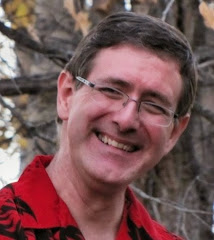Sharon and Bram sang a song called “Ham and Eggs” when they
were in Athabasca last week, and when I was struggling with my usual, “What am
I going to preach on” pre-sermon writing session, I prayerfully asked God for
help, and I got their song stuck in my head.
It’s a pretty straightforward song, “Ham and Eggs, Ham and
Eggs, I like mine nice and brown, you like yours upside down, ham and eggs, ham
and eggs, flip flop flip flop ham and eggs.”
Now when a song like that gets stuck in my head, and I have
a lot of songs I have heard over the years that can get stuck in my head, I
usually wonder, why that song and not something like Frank Sinatra’s “I did it
my way” or even some hymn like “Amazing Grace”.
Especially a hymn, when I’m trying to come up with a sermon. But no, I get ‘flip flop flip flop’
instead. Hardly gratifying or useful.
Except that Jesus is talking about flip-flopping and so is
Paul. The flip-flopping of folks who
want to hear God’s word as all fun and games or as all serious business. The flip-flopping of souls who want to do
what is right and follow all the rules that they think are important. Even the flip-flopping of what we think God
wants compared to what God actually wants.
We want easy answers that we can stick to and follow through
on that are efficient, effective, simple and straightforward. We want quick results. We want a recipe that will help us connect
with God that won’t require any painful work or change on our parts. We want all this and when it is a convenient
time for us. “Not right now, God, can
you come back later when I’m not so busy?”
Or “we don’t want to be bothered with this whole God stuff at all, too
hard, too complicated, too much like work, I’m just a simple person, and I
don’t want to deal with anything too intellectual.”
Paul got that. He
knew what it was like to search for the secret recipe, and he thought he had it
down pat. Follow the law, obey the
commandments, do the sacrifices, listen to the temple authorities, and you will
be in God’s good books. He was part of
the system that Jesus criticized. Paul
was a Pharisee, one of the children, in Jesus’ words, that was flip flopping
about Jesus and John. He would have been
focussed on following all the purity laws to be holy, to be reconciled to God. Follow the rules, be a good boy, and God will
look after the rest.
His writing today then is about his attempt to lead that
perfect life, and how inadequate it is to try to live by such rules. He even went as far as to challenge the
system, he says that the law is impossible to follow, it keeps tripping him
up. And it’s easy for the law to become
more important than God. I think that
when he had his conversion experience, Paul experienced God in a powerful,
personal and private moment that made his search, his striving for perfection
unnecessary. He figured out that he had
been aiming the wrong way. He had been
aiming at the Law, not at God. It goes
back to the idea of scripture being a pointer to God, but if we get fixated on
the pointer instead of what it is pointing to, we have lost the whole point of
the scripture in the first place.
The Pharisees thought it was more about criticizing other
people’s failures and scolding them than it was about God. They got caught up in the shame and blame
game, dismissing John, Paul and Jesus’ message.
They were more interested in looking smug and perfect than in letting
God transform their lives. They were
more concerned about appearances than about transformations.
Not too different than today, when you think about it. We live in a small town where everyone knows
everybody. Where people like to tell
stories of their neighbors and make judgements about them. Where we like to know who we can trust and
who we can avoid. We see each other
behaving in all kinds of different places.
I know how my neighbor treats the waitress in the Green Spot, or how the
store clerk treats new employees. We
know how the town council treats each other and how the teen center is
going. We like to feel like we’re better
than the church up the hill or down the road or across the river. We like to feel better than others and
compare ourselves to those who are struggling to deal with issues of marital
conflict or addictions or employability.
We like to feel that we have power and influence over others. But Paul and Jesus would caution us.
It’s not about feeling superior to others, having better
recycling practises or healthier lifestyles or fatter bank accounts. It’s about whether we’re open to God’s grace
in our lives. About letting go of the
tiring flip flop between feeling superior or feeling inferior to others as we
compare ourselves to them. Why do we do
that? Jesus says that such judgementalness
gets in the way of the simple truth that God loves us all. Paul reminds us that Jesus makes all things
possible, even the healing of my contradictory, flip-flopping willpower.
It’s so simple that even a child can figure it out. Rest and relax from the burden of being
judged and judgemental, of attempting perfection and demanding it of others. Instead, ask humbly for God to deal with the
things that wear us down. When we do
that, we do find that the burden is light for we carry it with the love, the
grace and the strength that God gives us when we humbly ask for the gentle
sustaining help that Jesus has promised us.
Thanks be that God never flip flops but loves us, supports us,
encourages us, and grows us as we follow in the footsteps of Jesus and Paul.

